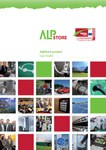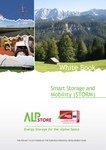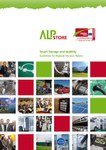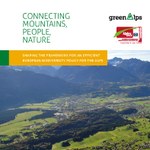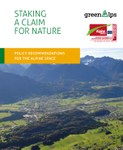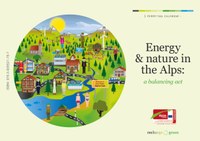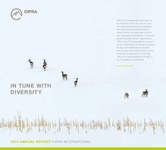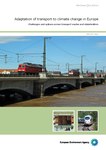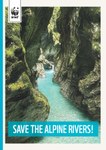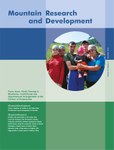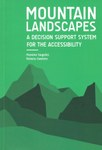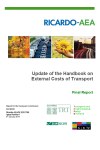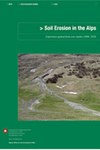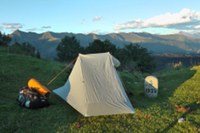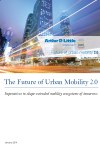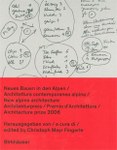Publications from our network
Helping ecosystems in Europe to adapt to climate change
This report summarises much of the work done by, and for, the Climate Change Group of the European Network of Heads of Nature Conservation Agencies (ENCA) between 2011 and 2013. The ENCA Climate Change Group is made up of experts in climate change and ecology from government conservation agencies across Europe. Read More…
AlpStore Projects - Case Studies
In AlpStore, 19 partners from all 7 Alpine countries investigated the short, medium and long term requirements for both stationary and mobile energy storages. They tested storages that need to be available all the time as well as others such as the batteries of electric vehicles, which may be disconnected from the power grid for a while. They used a wide range of technologies, such as biogas and hydrogen. They tested second life batteries and developed communication strategies and actively involved local citizens. This set of 12 case studies shall give an insight in the technologies, their availability and potential use cases. Partners of the local pilot applications share their findings, results and experiences. That shall allow a broad range of practitioners and planners to gain better understanding of how energy storage systems work and how they can help secure the prosperity of the Alpine Space. Read More…
White Book - Smart Storage and Mobility (STORM)
The Whitebook builds on the results of Alp-Store at about half time of the project. At the time of its publication AlpStore partners are in the midst of their research and deployment activities. Final guidelines of the project will be published in early 2015. They will describe the ultimate findings and give guidance to local and regional authorities, regional energy utilities and Investors. Nonetheless, it is worthwhile to use the information given in this Whitebook to structure the discussion process. Moreover, chapter 9.3 contains “Short-term non-regret options for players in Alpine regions”. Read More…
Smart Storage and Mobility - Guidelines for Regional Decision Makers
In AlpStore, 19 partners from all 7 Alpine countries investigated the short, medium and long term requirements for both stationary and mobile energy storage. They tested storage that needs to be available all the time as well as others such as the batteries of electric vehicles, which may be disconnected from the power grid for a while. They used a wide range of technologies, such as biogas and hydrogen. They tested second life batteries and developed communication strategies and actively involved local citizens. Now, it is time to share their findings, results and experiences from the implemented pilot applications to contribute to a better understanding of how storage works and how they can help secure the prosperity of the Alpine Space. Read More…
Connecting Mountains, people, nature - shaping the framework for an efficient european biodiversity policy for the alps
How successful are biodiversity policies, strategies and projects at connecting humans and nature in the Alps? The greenAlps project surveyed how efficient and effective nature conservation instruments are from the European to the municipal level. Our ultimate goal is to stimulate pro-nature governance change in Alpine countries. Read More…
Staking a claim for nature - Policy recommendations for the alpine space
The policy recommendations in this document highlight some of the gaps that have to be filled and needs that have to be met in order to implement successful nature protection measures. Moreover, they underline the huge impact that political situations have on nature conservation. Read More…
Energy & nature in the Alps: a balancing act. - Perpetual Calendar
This perpetual calendar explains the main project findings, in particular to decision-makers from local to Alps-wide level. It takes readers through the decision-making process that the fictional town of “Alpine Vale” goes through when discussing the potential use of renewable energy. Read More…
EEA Report No 8/2014 - Adaptation of transport to climate change in Europe
Challenges and options across transport modes and stakeholders. This report explores current climate change adaptation practices concerning transport across European countries. It provides an overview on the challenges and state adaptation action, a review of a number of initiatives in different countries, and conclusions on a potential way forward. Its purpose is to stimulate discussions among the many different stakeholders concerned with transport adaptation. Opening the perspective on the transport system and sector as a whole should inspire and encourage learning from practices across modes and areas of responsibility and support efforts to mainstream adaptation within transport-related policy and practices. The factual information collected is based on data available in the Climate-ADAPT information platform, a literature review, case studies provided by many stakeholders, and a questionnaire on transport and adaptation addressed to EEA member countries in 2013. Read More…
Save the alpine rivers!
WWF European Alpine Program, 2014 Read More…
Mountain Research and Development, Vol 34, No 4, on Family Farming in Mountains
Based on centuries of experience in tackling mountain environments, farming families and communities have developed distinctive forms of institutions and organizational arrangements. This MRD Focus Issue on Family Farming in Mountains addresses the question to what extent these institutions and organizational arrangements have been able to cope with the current multiple challenges. It also explores whether family farming practices have succeeded in generating solutions in combination with new institutional arrangements and policies, and whether this enables family farmers in mountains to benefit from new opportunities.. The geographical range of papers in this issue reaches from Italy to Ukraine, Slovakia, China, Bolivia, and Spain. Read More…
Mountain Landscape
A decisionsupport system for the accessibility Read More…
Soil Erosion in the Alps
Experience gained from case studies (2006–2013) Read More…
Mobile Borders
Alpine Variations Read More…
The Future of Urban Mobility 2.0
Imperatives to shape extended mobility ecosystems of tomorrow Read More…
